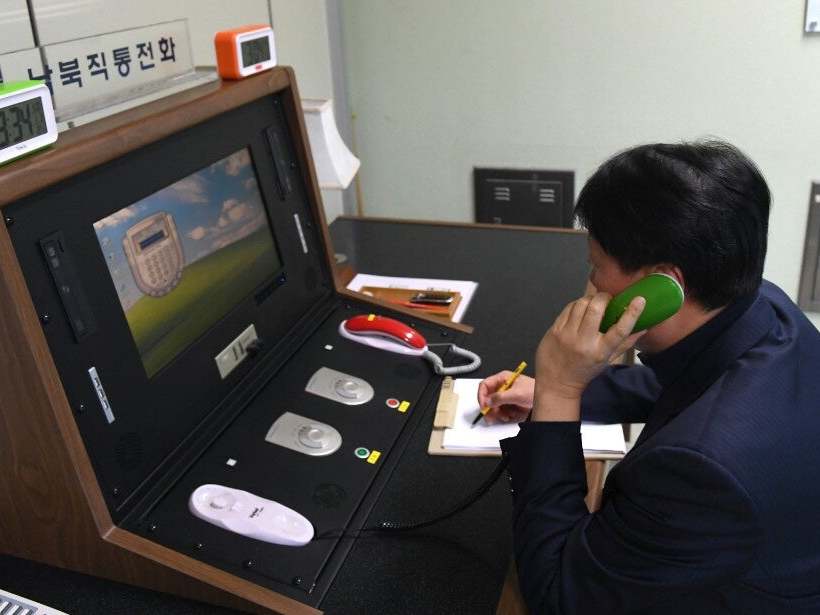North Korea severs all communication with ‘enemy’ South Korea
Pyongyang’s state news agency reports ‘dismay’ at Seoul in row over defectors

North Korea has closed all lines of communication with South Korea, following a row over defectors living in the South sending leaflets and other materials into the North.
State news agency KCNA reported that top government officials in North Korea, including leader Kim Jong-un’s sister Kim Yo-jong, and the vice-chairman of the Central Committee of the ruling Workers’ Party of Korea, determined “that the work towards the South should thoroughly turn into the one against an enemy”.
North Korea had been lashing out at South Korea for several days, threatening to close an inter-Korean liaison office and other projects.
The KCNA report said as of noon on Tuesday, North Korea closed lines of communication at the liaison office and hotlines between the two militaries and presidential office.
A South Korean defence ministry spokesperson told a briefing on Tuesday morning that North Korean officials did not answer a routine daily call to the liaison office.
Spokesperson Choi Hyun-soo said this was the first time the North had not answered phone calls from the South in the liaison office since hotlines started running in 2018.
“This measure is the first step of the determination to completely shut down all contact means with South Korea and get rid of unnecessary things,” reported KCNA.
“We have reached a conclusion that there is no need to sit face to face with the South Korean authorities and there is no issue to discuss with them, as they have only aroused our dismay.”
According to The Korea Herald, South Korea’s unification ministry said the phone rang but no one answered. It urged North Korea to maintain the communication lines.
“Communication lines between the South and the North are a basic means of communication and should be maintained in accordance with inter-Korean agreements,” said an official from the ministry.
“While abiding by inter-Korean agreements, the government will make efforts for peace and prosperity on the Korean Peninsula.”
North Korea called the South Korean government’s inability to stop defectors from sending leaflets into the North an affront to “the dignity of our supreme leadership”, the report added, calling defectors “disgusting riff-raff”.
“As far as the issue of the dignity of our supreme leadership is concerned, there can neither be a pardon nor an opportunity. They should be forced to pay dearly for this,” it said.
Analysts said the move is likely about more than the defectors, as North Korea is under increasing economic pressure as the coronavirus pandemic and international sanctions take their toll.
Professor Choo Jae-woo, from Kyung Hee University in South Korea, said: “North Korea is in a much more dire situation than we think. I think they are trying to squeeze something out of the South.”
North Korea’s threats come as a United Nations human rights expert voiced alarm at what he called “widespread food shortages and malnutrition” in the country, which have been exacerbated by a nearly five-month border closure with China and measures to protect against Covid-19.
Tomas Ojea Quintana, UN special rapporteur on human rights in North Korea, urged the UN Security Council to “reconsider sanctions” to ensure the flow of food supplies.
He said in a statement: “There have been reports of an increase of homeless people in large cities, including kotjebi (street children) and medicine prices have reportedly skyrocketed. An increasing number of families eat only twice a day, or eat only corn, and some are starving.”
Elisabeth Byrs, a spokesperson for the UN’s World Food Programme, told a Geneva news briefing that the humanitarian situation in North Korea “remains bleak”, with around 40 per cent of the population needing humanitarian aid.
Additional reporting by agencies
Subscribe to Independent Premium to bookmark this article
Want to bookmark your favourite articles and stories to read or reference later? Start your Independent Premium subscription today.







Join our commenting forum
Join thought-provoking conversations, follow other Independent readers and see their replies
Comments